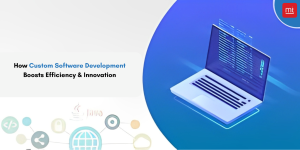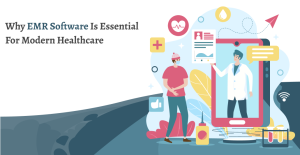How to Find and Hire Healthcare Software Developers

The healthcare solutions market is not impenetrable, contrary to popular belief. Today, the demand for solutions that deliver efficiency, automation, and accuracy is growing. In today’s era where cutting-edge technology is changing almost every aspect of people’s lives, healthcare providers and organizations need software solutions that not only streamline care delivery but also accelerates routines and boost patient outcomes ultimately.
The demand for healthcare software developers is already huge, with experts stating that the market would grow to reach $19.3 billion by 2025. Healthcare organizations and clinicians these days are more than ever under great pressure to cut costs, offer patient-centered services, and run more efficiently.
Tailored software for the healthcare industry could greatly help boost productivity, portability, accessibility, and scalability. How do you find the right software development partner for your healthcare solutions need? If you have a medical startup plan and want to entrust it to a reliable vendor, then read on.
In-House or Outsource?
The first thing to take into consideration is whether to hire an in-house team or outsource. Decide on how to organize the development process. If you opt for in-house development, then you have to hire your staff to design, develop, test, and release an app based on your requirements. A software engineering team working in your office has these advantages:
- complete project dedication
- deep understanding of your expectations and ideas
- no time difference or language barrier
- cultural fit and face-to-face interaction
Nonetheless, before you get to enjoy these advantages, you have to invest money and time in assembling the specialists necessary for medical app development. And in the process of assembling your team, you will see the drawbacks of having an in-house team, such as:
- limited pool of local talent because of the growing demand for medical software development providers. The candidate should be able to fit your budget and meet your skill requirements.
- The final expense consists of administrative costs, including software licenses, hardware, taxes, rent, sick pay, and training.
To outsource means to delegate tasks. In the Information Technology environment, it has become common practice to have development work completed by a third-party software development company. By next year, it’s expected that the IT outsourcing market will reach $96.7 billion. With outsourcing, you will gain several advantages, including:
- no hassles of hiring
- flexibility in the cost
- virtually limitless access to technologies
- the ability to scale teams to adjust the speed of development
- the virtually unlimited pool of talent
Outsourcing only has two major drawbacks, and that is time zone differences and language barriers. The difference in time zone could lead to communication gaps and blowing deadlines. The language barrier is a common issue for offshore clients.
Nevertheless, hiring a healthcare software service provider with IT specialists who are fluent in English is possible.
Finding and Hiring a Healthcare Software Development Company
- Technical Education
Computer education begins at school. Seventy percent of university students, in most outsourcing destinations in the world, such as India and Ukraine who study computer science combine coursework and working with a software development firm. Each year, there are thousands of IT specialists graduates who continue their education with advanced training courses in Information Technology.
- Proficiency in English
A software vendor outsourcing service provider with English proficiency is ahead of the competition. Businesses and organizations of all shapes and sizes prefer to partner with development companies that have a team of specialists who are fluent in speaking and writing English.
English is the universal language, making communication across cultures easier. In the continually evolving tech industry, the ability of the software vendor to communicate fluently with teams in various geographical settings could yield more accomplished goals and higher productivity.
- Experience
Software engineers learn new technologies regularly and are ready to complete even the most complex projects. Organizations that outsource their healthcare software need to partners in India could expect to get results fast, as long as there’s proper sharing of a well-structured idea with deadlines and guidelines.
In software development, the importance of a real-world experience is simply something that could not be over-stated. No longer is it a ‘plus point’ to have experience in the field, but it’s now essential.
- Technical Competencies
Typically, technical competencies are used together with interpersonal or general competencies to build job profiles that are highly targeted, which focus on both ‘know-how’ and ‘soft skills’ required for successful performance. Technical competencies help differentiate between jobs within a functional location.
In Argentina, most developers specialize in PHP, C, Java, .NET, and JavaScript frameworks. Ukraine is the leader in the number of JavaScript, Ruby, PHP, C++, Node.js, Magento, ASP.NET, Scala, and Python engineers. The development market in India is focused
Roles and Responsibilities
Some common roles and responsibilities of a developer of healthcare software include the following.
- medical software engineer
- systems and data analyst
- healthcare information systems technician and developer
- cybersecurity and IT specialist
- network developer
- healthcare app and portal developer
- AI and automation app developer
- IoT, equipment sensors, and wearable technician
A lot of career opportunities within the healthcare industry overlap with other fields. For instance, cybersecurity and IT, or automation and AI developers have a place in just about any field, from marketing and retail to hospitality.
What makes the healthcare industry particularly attractive, and more so in some instances is that it’s relatively a young field technologically. So, competent and reliable developers and engineers have a strong influence on the direction and future of the market.
Conclusion
Healthcare software engineers and developers are creative thinkers who craft software systems or apps that support the delivery of healthcare solutions, pave the way to breakthroughs in medical cures. They could work websites that connect researchers with clinical trial data all over the world, mobile apps fostering real-time coordination between physicians, or provide instant access to the health records of patients and software to support health record information and electronic health records exchanges.
Moreover, healthcare software professionals can define the issue that the system has to address, analyze the needs of users, and requirements gathering, including system standards and specifications.






